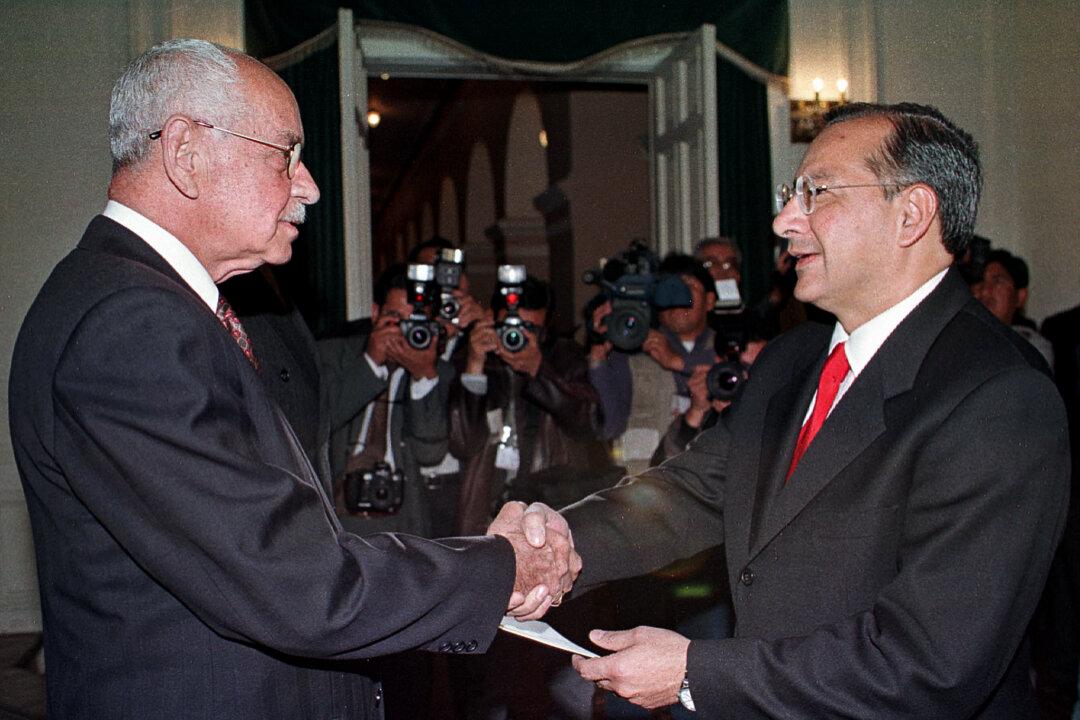A former U.S. ambassador who had access to top secret government information has been sentenced to 15 years in prison after pleading guilty to working for communist-run Cuba’s spy service for decades.
Victor Manuel Rocha, a former U.S. ambassador to Bolivia and member of the White House National Security Council, was recruited by Cuba’s spy agency in 1973, according to the Department of Justice (DOJ).





